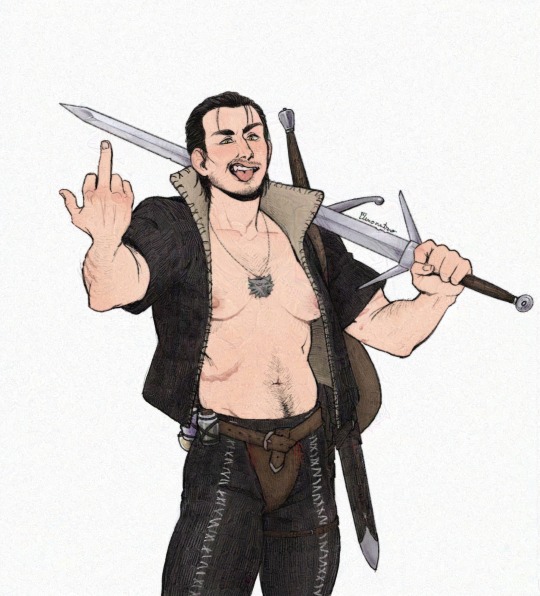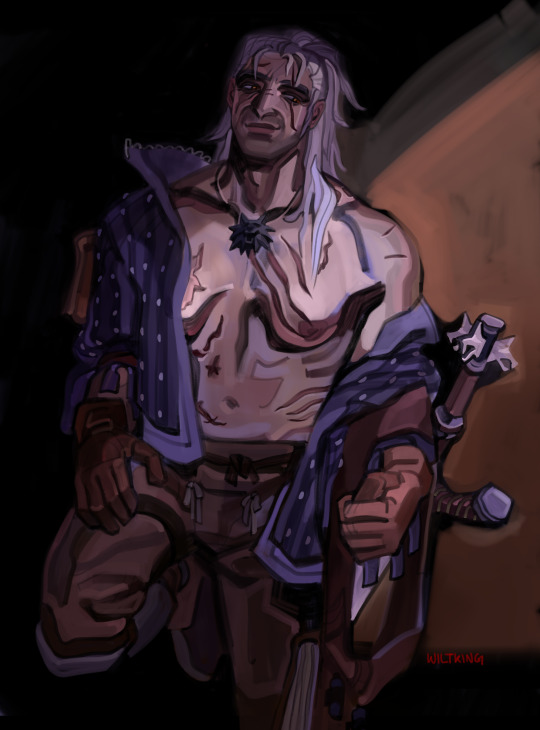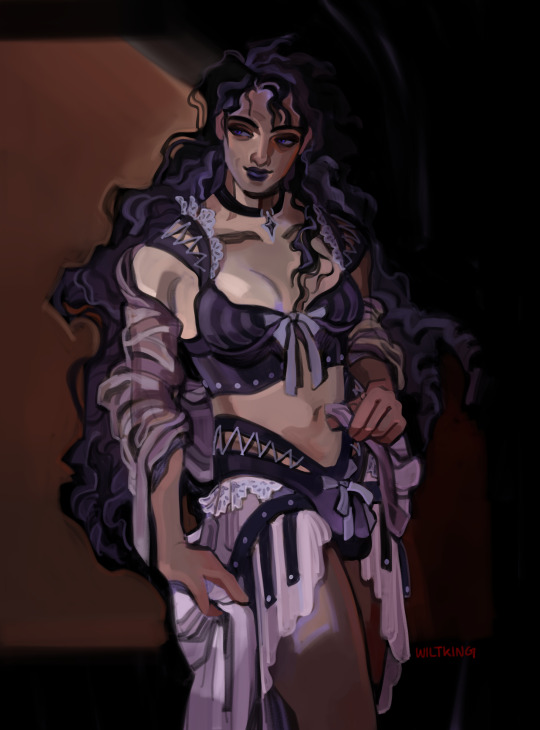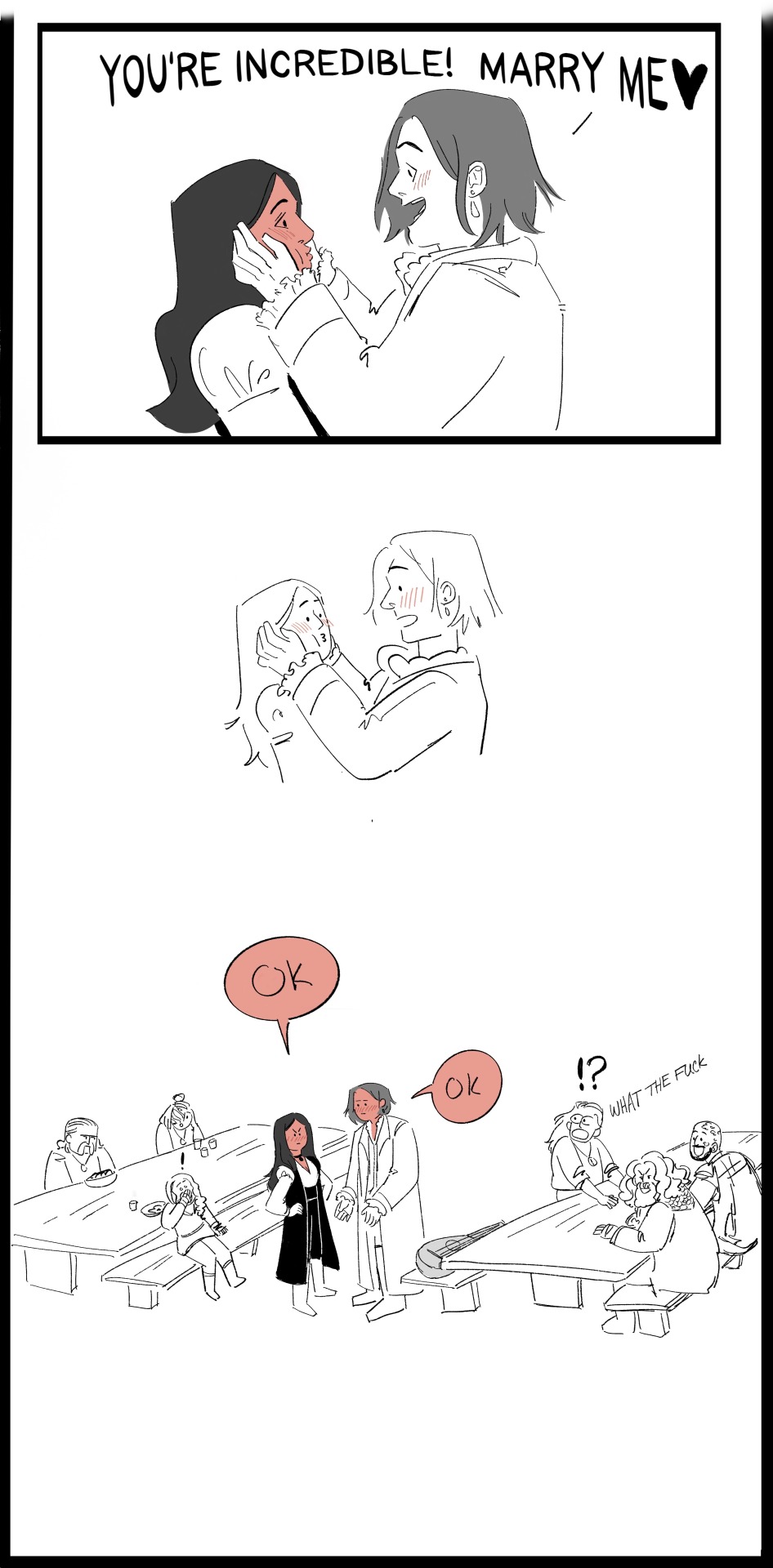Nox, 31, he/they, french witcher trashbag. There may be smut. Main is @razorblade-skies
Don't wanna be here? Send us removal request.
Text
The Witcher fandom, seeing the Witcher IV reveal:

#AND AT THE SAME TIME#Baby deserves a break#BABY SHOULDN'T FEEL LIKE THE WEIGHT OF THE WORLD IS ON HER SHOULDERS#Baby saw so much of the horrors#Baby lived though them#Baby has survivor's guilt
3K notes
·
View notes
Photo


lineart finished :3 we’re getting there… here’s the progress post
2K notes
·
View notes
Text

Cirilla Fiona Elen Riannon of Cintra my beloved
941 notes
·
View notes
Text
just some lauren quotes
“The comedy is what separates ‘Witcher’ from a lot of other fantasy material like ‘Game of Thrones.’ It comes from an organic place which is that Andrzej Sapkowski is Polish, and he was telling me a lot about what it was like to grow up in Poland at a time when there country was being constantly taken over by other countries, there was a lot of political turmoil, a lot of people died, a lot of conflict, and yet you still have to get up every day and put one foot in front of the other and continue on with your life. He said, ‘How do people deal with tragedy? They laugh.’ Bringing that aspect into a fantasy show is really fresh and had never really been done before. It was really important to me to keep in that in, and I hope the fans appreciate it.”
"Yes, he’s a consultant on the show. I met with him very early in Poland when I came on to adapt and really dug into his life and why he was writing these short stories in the first place, what drew him to the character and how his own experiences in Poland influenced how he wrote it."
"It’s interesting because the women in the books that [Andrzej] Sapkowski wrote are very, very strong and very independent. It’s actually one of the first things that I asked him about, when I met him. The women were much more powerful, much more centered, and much more independent than I ever could have imagined, for a fantasy book from the 1980s, and Sapkowski said, “I just based them on the women that I knew.” Especially coming from Poland, and Central Europe, when he grew up, a lot of the men were killed in war and conflict, and women really had to be at the forefront, not just of their families, but of their communities and the workplace. These were the women that he knew, so they’re the women he wrote, and that’s one of the big things that I tried to honor."
"You know, when I first spoke to Andrzej Sapkowski, the author of the books, I actually, I told him, I was actually surprised by the strength of the women in these books and he pointed, actually he said something fascinating; that I’ve never met his mother. He basically explained to me the role of women in post-war Poland and said that most of the men had died off in conflict and women really became, not just the centre of the family, but the centre of society, of culture and of the workplace. And so, you know, it’s interesting because people ask me about the female characters a lot and the complications of them, but it’s really what real women are like anyway, right? I mean it’s strong in some circumstances, vulnerable in others, occasionally bold, occasionally bitchy, occasionally silent. It really is, to me, what I wanted to capture is these women before they were seen through the lens of anyone else."
"I met him really early on in the process. I went to Poland on a research trip and he and I had an amazing lunch and just sort of sat down. We didn't even talk about The Witcher for a while. I just kind of wanted to know what made him tick as a writer, you know. So it was a great lunch between two writers and I just wanted to understand why he wrote this book, what he put of himself in it, what he put of his travels in it. He's very famous. He talks a lot about his international travels and those are really the things that inform these stories."
"When I spoke with Sapkowski, we talked about what his books meant to him — he gave me a fair share of important points, but the thing that resonated most with me is this struggle between humans and non-humans. This can be extrapolated into our current real world in dozens of ways: immigration, racism, sexism, xenophobia, class warfare, yes. But it’s also as simple as old playground feelings of not belonging, feeling on the outside, feeling “other.” It’s something every single person can relate to, in one way or another. It’s really important, in a world of dragons and monsters and elves, that we keep the emotional touchstones of the show really relatable, so we’ll be continuing to explore it a lot in season two."
58 notes
·
View notes
Photo

Christmas is over but it’s still sweater weather!
A gift for my wonderful friend courtney @/gotfanficion on twitter <3
2K notes
·
View notes
Text

i miss doing nothing but drawing eskel
1K notes
·
View notes
Text

SHE’S BACK, our daughter is back :’)
735 notes
·
View notes
Text

yennefer in zuhair murad
276 notes
·
View notes
Photo

my beautiful wife Yen
4K notes
·
View notes
Text
funniest thing about the witcher is that decades on people still thing geralt is the main character
1K notes
·
View notes
Text

Also posting this young man here for my birthday because I really like how he turned out! It's his first year on the path and he got a big scar and a cool story to tell
378 notes
·
View notes
Text
People love, love to bring up one-off moments of Yennefer at her worst. Yennefer who is mean, cold, haughty, angry, hurt, jealous, stand-offish.
It’s both funny and sad to me that people forget the rest. Yennefer, who ruins her expensive camlet dress without even realising it to save a woman having a miscarriage on the steps of Kaer Trolde. Yennefer, who gives the nervous young clerk Fabio Sachs the Younger such unexpected high praise that he blushes to the roots of his chestnut hair. Yennefer, who saves Giancardi’s family. Yennefer, who buys back Geralts swords without his knowledge - who has her own banker keep track of where he is looking for work, to make sure the region has a decent “Witcher fund”, even when they’re not together.
Yennefer, who on Skellige, earns the favour of Freyja, the patron goddess of motherhood; receives her grace, her diamond, her Brisingamen, because she is willing to endure more than the limits of human suffering for Ciri.
Yennefer has so many flaws: she’s a deeply broken, traumatised woman who’s prideful and knows how to play the ice queen. But if you don’t realise that Yennefer is also full of love for people around her, hidden kindness and compassion…you might want to read those stories again.
758 notes
·
View notes
Text

A gift for the lovely @ghostinthelibrarywrites for their donation to @fandomtrumpshate 💜🐺
Poor Dandelion, those hose aren't going to fit anymore
136 notes
·
View notes
Text


the lovers
5K notes
·
View notes
Text


Jaskier gets a lute and a wifey (˵ ͡~ ͜ʖ ͡°˵)ノ⌒♡*:・。.
Yennefer was so flustered she accepted Jaskier’s proposal without thinking (*/ω\)
the lute has buttercups on it btw .❀。• *₊°。 ❀°。
3K notes
·
View notes
Photo

they’re getting ready for pride Happy pride month everyone!
1K notes
·
View notes
